Meat News
The Butchers’ and Drovers’ Charitable Institution (BDCI) is to offer a £5,000 bursary through Harper Adams University in Shropshire.
The BDCI Bursary is open to all first- or second-year BSc or FdSc students whose course of study has a direct relevance for a future career in the meat and livestock industry.
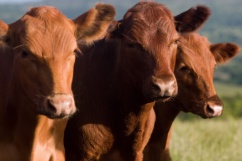
At postgraduate level, the BDCI Bursaries will be awarded to students entering Harper Adams University to study for PgC, PgD or MSc courses which have direct relevance to the meat and livestock industry.
Preference will be given to those candidates who have family or employment links with the meat and livestock industry or who have an intention of seeking employment in the industry.
The successful scholarship recipients will receive a bursary of up to £5,000 per academic year of full-time study at Harper Adams University.
Ted Hoefling, BDCI treasurer, said: “These awards are a new initiative from BDCI. We hope they will help students who can make a difference in the industry. We are delighted to be working with Harper Adams this year.”
Closing date for applications is noon on 15 June 2015, with the successful applicants decided in July.
Pork farmers supplying Waitrose have saved an estimated £850,000 on feed per year since 2010, following a £3 million investment to roll out an innovative feeding system known as Eco Pig.
The feeding system has a lower environmental impact than traditional systems, according to Waitrose, which reported on the investment in the 2015 John Lewis Partnership annual report, published on 24 April 2015.
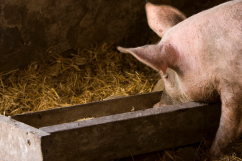
Waitrose has a sole pork supplier, Dalehead Foods, and its subsidiary, BQP, footed the £3 million bill.
Waitrose said its “respectful partnership approach” with suppliers had given BQP the ability to invest in the individual farms with which it works. “This helps to increase capacity, improve standards and efficiency, and encourage the next generation of farmers,” the annual report stated. “This respectful partnership approach has given BQP the ability to invest in the individual farms with which it works.”
The report added that, since 2010, 44 of Dalehead’s farmer partners have invested more than £13 million in buildings, during a period of low confidence in the sector as a whole, to create new capacity.
Scientists at the Massachusetts University of Technology (MIT) have created a sensor which detects gases emitted from rotting meat, which could help to reduce food waste.
With food waste a hot topic, the scientists behind the sensor said it could be used on ‘smart packaging’, enabling consumers to accurately tell when meat has gone off.

/>
Speaking to the journal Angewandte Chemie about the sensor, Timothy Swager, the John D MacArthur professor of chemistry at MIT, said: “People are constantly throwing things out that probably aren’t bad.”
The sensor was modelled on a similar device used to measure the ripeness of fruit. It uses carbon nanotubes that have been chemically modified to be able to carry electric current changes in the presence of a particular gas – putrescine and cadaverine in decaying meat.
Researchers said a regular smartphone, using software developed by Swager’s lab, could read outputs from the sensor.
The technology has been welcomed by Roberto Forloni, senior science fellow at Sealed Air, supplier of food packaging. “There are several potential advantages in having an inexpensive sensor for measuring, in real time, the freshness of meat and fish products, including: preventing foodborne illness; increasing overall customer satisfaction; and reducing food waste at grocery stores and in consumers’ homes,” said Forloni.
Halal meat brand Ghanim International UK has extended its range of frozen, microwavable products in Tesco.
Ghanim International UK has launched its ‘Chilli Nacho Chicken Drumstick’ and ‘Garlic Butter Chicken Kiev’ in over 42 Tesco stores, as part of its Brunei Halal range.

The company said combining quality-assured British meat with innovative products, while meeting the needs of second- and third-generation Muslim consumers, was a key focus.
Dr Mohammad Nazir OBE, CEO of Ghanim International UK, began talks with senior management at Tesco more than a year ago and has seen the partnership flourish, with the range now being expanded into chilled products.
“We responded to Tesco’s challenge for more innovative products.
“Our brand has been recognised as having strength by sourcing British local produce and a high level of halal integrity, quality and presentation. I feel really excited that Tesco has been able to see our vision in reaching out to the second- and third-generation Muslim consumers in the UK,” Nazir commented.
Meanwhile, Ghanim International UK said Tesco was “striving to offer complete halal assurance, to ensure there is quality and traceability from farm to family”.
Crawshaws Butchers saw sales rise 17% in the year ending 31 January 2015, helped by a new site opening.
The company’s year-end results to the end of January revealed that total group sales rose from £21 million (m) in 2014 to £24.6m, with profit before tax standing at £1.2m.
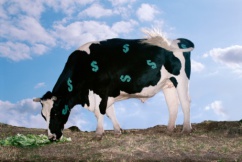
Average customer spend has continued to rise, according to Crawshaws, up 3.5% to £6.22 versus last year. The company explained that this was down to a focus on larger value packs and multi-buy offers. Customer numbers are 3.2% higher than last year “driven by our hot cooked products as we improve the range and consistency of our lunchtime and take-home offer”, the report added.
Chairman Richard Rose said: “I am pleased to say that, in November, we moved from three separate head office and factory locations into one newly refurbished facility in Rotherham. This single location can now support up to 60 shops and also contains a new factory shop, which is performing well above expectations.”
Crawshaws Butchers has 22 retail outlets, as well as a manufacturing and distribution centre, across Yorkshire, Humberside, Nottinghamshire and Lincolnshire.
The company said: “In line with our growth strategy, we have now successfully launched 10 new shops in Retford, Castleford, Chesterfield, Mansfield, Huddersfield, Doncaster, Bramley, Derby, Sheffield and, more recently, a factory shop at our head office site in Rotherham.”
Crawshaws has a plan to open 200 shops, and Rose added: “The post-year-end acquisition of Gabbotts Farm has provided 11 additional profitable shops and a distribution centre in the north west of England. We have also recently signed leases on new shops in Leeds and Bolton, which are currently being fitted out. In addition, there are a number of other locations in the process of being signed up.”
Beef prices could begin to firm up in the coming months, Quality Meat Scotland (QMS) has forecasted, in welcome news for cattle farmers, who have faced falling prices during the first part of the year.
Stuart Ashworth, head of economics services with QMS, said the supply and demand pendulum would soon start to swing back towards farmers as availability of prime cattle in the UK started to diminish in the next quarter.
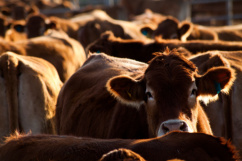
“We expect to see the volume of cattle arriving at abattoirs slow down. It is likely we will then see some firmness in the market for the beef producer,” Ashworth predicted.
Ashworth said a range of factors had led to falling prices at the start of the year, all based around supply and demand. The volume of beef produced over the first quarter increased 1%, due to cattle being slaughtered at heavier weights. In addition, the strong pound has meant imports have become attractive, and exporting has become more expensive.
“Add to that the increase in domestic supply and we find that the market has been working with around 8% more beef than a year ago,” said Ashworth.
That would not have been an issue if consumption had been strong, but while it has improved for some cuts, it has not been enough to absorb the extra supply.
“Some cuts have been selling better than others, but the product which is not selling well has been building up in processors’ chills and has had to find a market in the manufacturing trade, which has been proving sluggish,” added Ashworth.
“This explains why we have seen a slide in farm-gate prices and why some of our producers have been facing an extended period to get cattle to market.”
However, looking forward he said the outlook was looking more promising for beef farmers.
“We know from the British Cattle Movement Service (BCMS) data that the volume of cattle set to come forward as prime stock over the next six to nine months will diminish further and the same scenario is expected in Ireland,” said Ashworth. “This will mean the abattoirs will be able to manage the sale of less popular cuts out of their cold stores and the whole supply and demand balance will come closer together.”
Bpex has launched point-of-sale material for butchers as part of its campaign to promote pulled pork.

The kits will contain posters, window vinyls and recipes with the strapline ‘Perfect for Pulled Pork.’
Bpex hopes the campaign will help boost sales of pork shoulder, after the levy board found very few young people were eating fresh pork at home, remaining popular with over-60s age group.
The promotional activity will be supported by a £2m television marketing campaign.
Butchery and product development manager at Bpex, Keith Fisher, said: “We are hugely excited by this campaign and its potential impact on pork shoulder sales and wanted to give the independent retail sector every opportunity to benefit. We know that promotional kits are well received, not just by butchers, but also their customers, who can take much-needed recipe inspiration away with them. In fact, anecdotal evidence suggests that effective merchandising can increase sales by as much as up to 25%.”
The meat snacking market provides a substantial opportunity for businesses, according to a new report into eating habits.
The report, Redefining Healthy Snacking, found the meat snacking market has increased over 20% in several countries between 2012-2014.
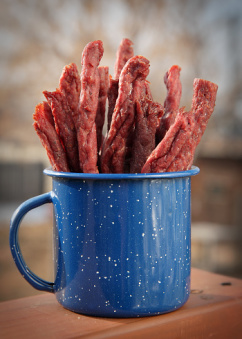
According to market analysts Neilsen, between 40% and 60% of consumers in different regions of the globe often replace a meal with a snack. The Redefining Health Snacking report found several companies are exploiting this to their advantage.
“The businesses that are proving rather successful are the ones that are creating new markets with new, differentiated snack concepts, often using new ingredients and processes, often sold under new brands (or old brands that have been boldly reinvented) with new messages,” said Julian Mellentin, author of the report. “They do not follow the market with predictable products.”
Meanwhile the report states that start-up companies are best placed to capitalise on the trend: “consumers’ beliefs about what healthy means have fragmented massively, creating a wealth of niches that can be used as platforms to build successful brands. Big companies tend to overlook areas that seem too small, leaving the way clear for entrepreneurs and start-ups.”
Food deflation continues to have an impact on meat and poultry sales according to the latest data from Kantar Worldpanel.
For the 12 weeks ending 19 March 2015, average volume sales were down, with turkey and pork experiencing the biggest decline, at -5.2% and -4.8% year-on-year respectively.
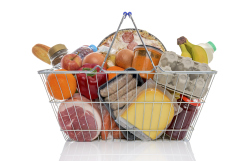
Kantar said basket size and frequency of purchase remained flat as food deflation was making the same basket cheaper.
“Fresh primary meat and poultry continues to be impacted by deflationary pressures, with the average price per kg down significantly. While this helps to drive more shoppers into the category, we are seeing basket sizes and frequency flat, as deflation makes the same basket cheaper,” Kantar Worldpanel reported.
The Office for National Statistics reported in February that food inflation had reached an all-time low at 0%, whcih remained unchanged in March.
Meanwhile a survey carried out by mySupermarket.com found that the average weekly grocery shop had fallen from £88.59, for a basket of 35 items to £87.70. The survey also found that the average weekly shop of grocery products from the main UK supermarkets had fallen 7% in the last year, with the same basket costing £93.95 in March 2014.
Meanwhile, lamb has benefited from increased Easter sales – up 14.3% on the same period last year. Kantar said price cuts and strong promotions were driving strong uplifts in sales before Easter.